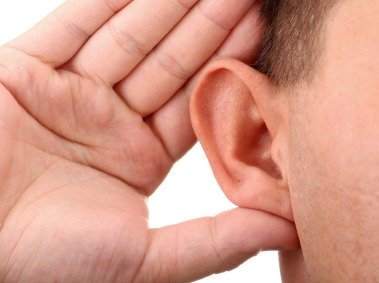Can Being Overweight Lead To An Increased Risk Of Hearing Loss?
by Sophie Davidson
(United Kingdom)
We all know that being overweight can affect our health, sometimes seriously. Successive governments run campaigns to get people to exercise more and eat healthy. Celebrity chefs even try and encourage schools to prepare healthy lunches, and there are now worries that one day soon people who are overweight may have to pay more for their healthcare.
An increased Body Mass Index (BMI) can be a cause of, among other complaints, heart disease, Type 2 diabetes, strokes, high blood pressure and osteoarthritis. But what most people probably aren’t aware of, and what recent research from Harvard has revealed is that a higher BMI and larger waist circumference can also lead to hearing loss!
Experts, such as those from Hidden Hearing, advise that if you are experiencing difficulties with your hearing, whether you suspect the cause might be related to your weight or something else entirely, it is always best to have it checked out as soon as possible, before it worsens.
Findings From the Harvard Medical Study...
So what did this comprehensive study actually find? Over a 20 year period, from 1989 to 2009, some 68,000 women were asked questions relating to their daily lives, and in 2008 were asked if (and when) they had experienced any problems with their hearing. Of the one in six women who had suffered hearing loss during that period, it was found that those who were considered obese - with BMIs in the range of 30-39 (normal is 18.5 - 24.9) - were up to 22% more likely to have auditory problems. Those who were the most obese were by far the most at risk; up to 25% more than women with BMIs at normal levels!
These findings have been backed up by research on mice, believe it or not, which indicated that the obese rodents often suffered impairment of their senses, such as smell. Since mice and humans share some similarities
How Exactly Does Being Overweight Cause Hearing Loss?
One way that obesity affects our hearing is it causes plaque to build up in the arteries, a condition known as atherosclerosis. This can put pressure on the auditory nerve, making it harder and more narrow, and reducing the flow of cochlear blood, which we need for hearing.
In humans, the proportion of body mass that is fat roughly doubles between the ages of 25 and 75. So if you notice as you begin to grow older that you are having trouble catching what people say during conversations, or need to use subtitles on the TV, then it may not just be what’s called presbycusis, which is hearing loss due to the natural consequence of ageing. There may actually be a more complicated reason!
Other Causes of Hearing Loss...
Naturally there are many other causes of hearing loss. Prolonged or frequent exposure to loud noise is a major one, something that often afflicts people who work in construction, music or farming. But if your BMI is higher than it should be, or your waist circumference is more, and you are worried that it is having a detrimental effect on your ability to hear the world around you, then you can take some comfort from the Harvard study above, which indicates that regular exercise and a healthier diet can not only help shed unwanted pounds, they can also help to improve your hearing. In fact, walking for even four hours a week can actually cut your risk of hearing loss by about 15%. So if you’re struggling to follow what’s being said in meetings, just swapping the bus to work in favour of your own two feet could make all the difference!
Comments for Can Being Overweight Lead To An Increased Risk Of Hearing Loss?
|
||
|
||
Recent Articles...
-
6 Powerful Home Remedies for Excessive Sweating That Work!
Apr 08, 25 10:00 AM
Excessive sweating is most often associated with stress and anxiety, being overweight, nutritional deficiencies and poor circulation. Health problems such as diabetes, heart problems, hyperthyroidism… -
Best Natural Remedy for Arthritis...
Mar 13, 25 11:00 AM
One of the most effective treatments for arthritis is a unique combination of glucosamine, chrondroitin, MSM biological sulphur and collagen. So here's how to use these powerhouse substances effective…


